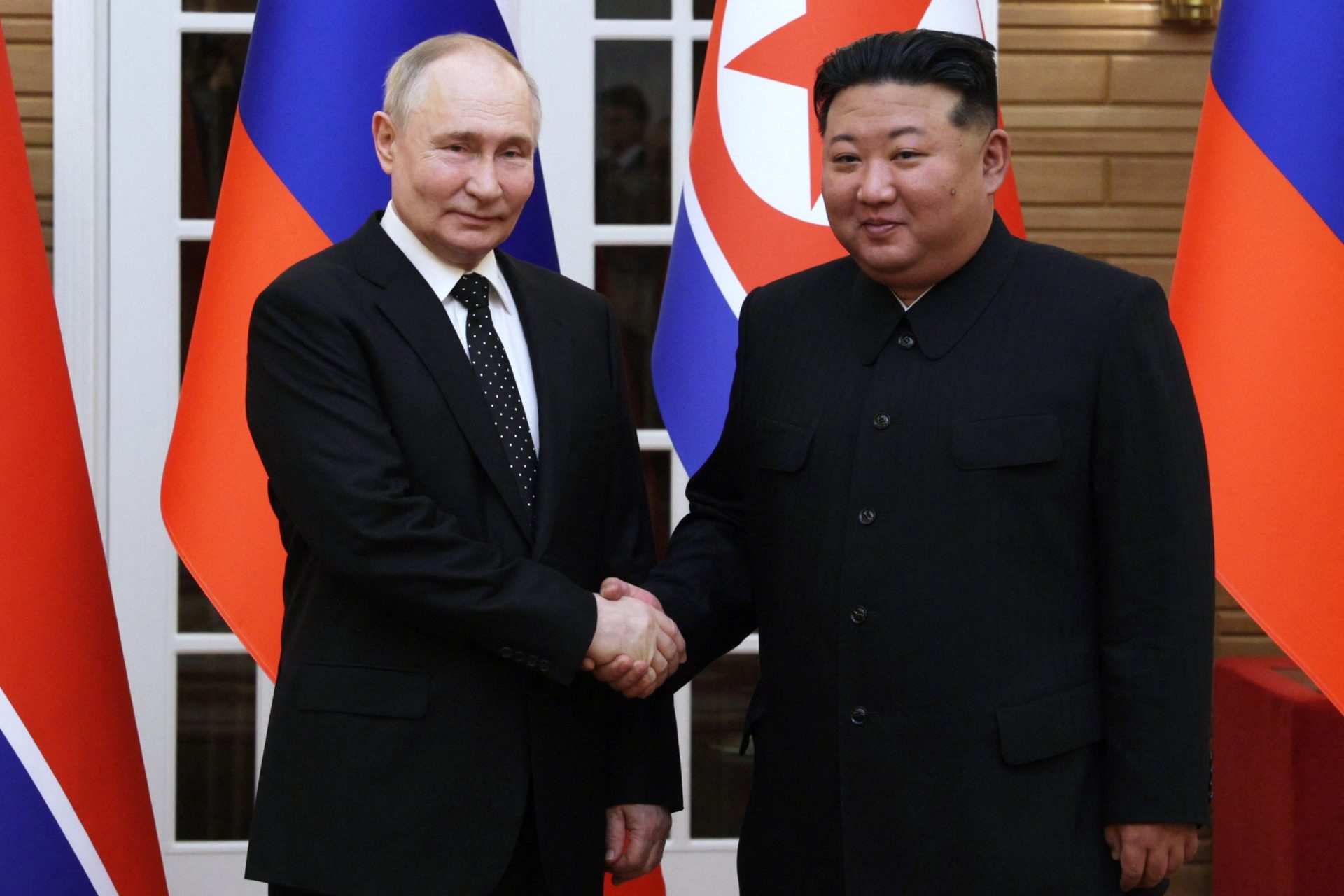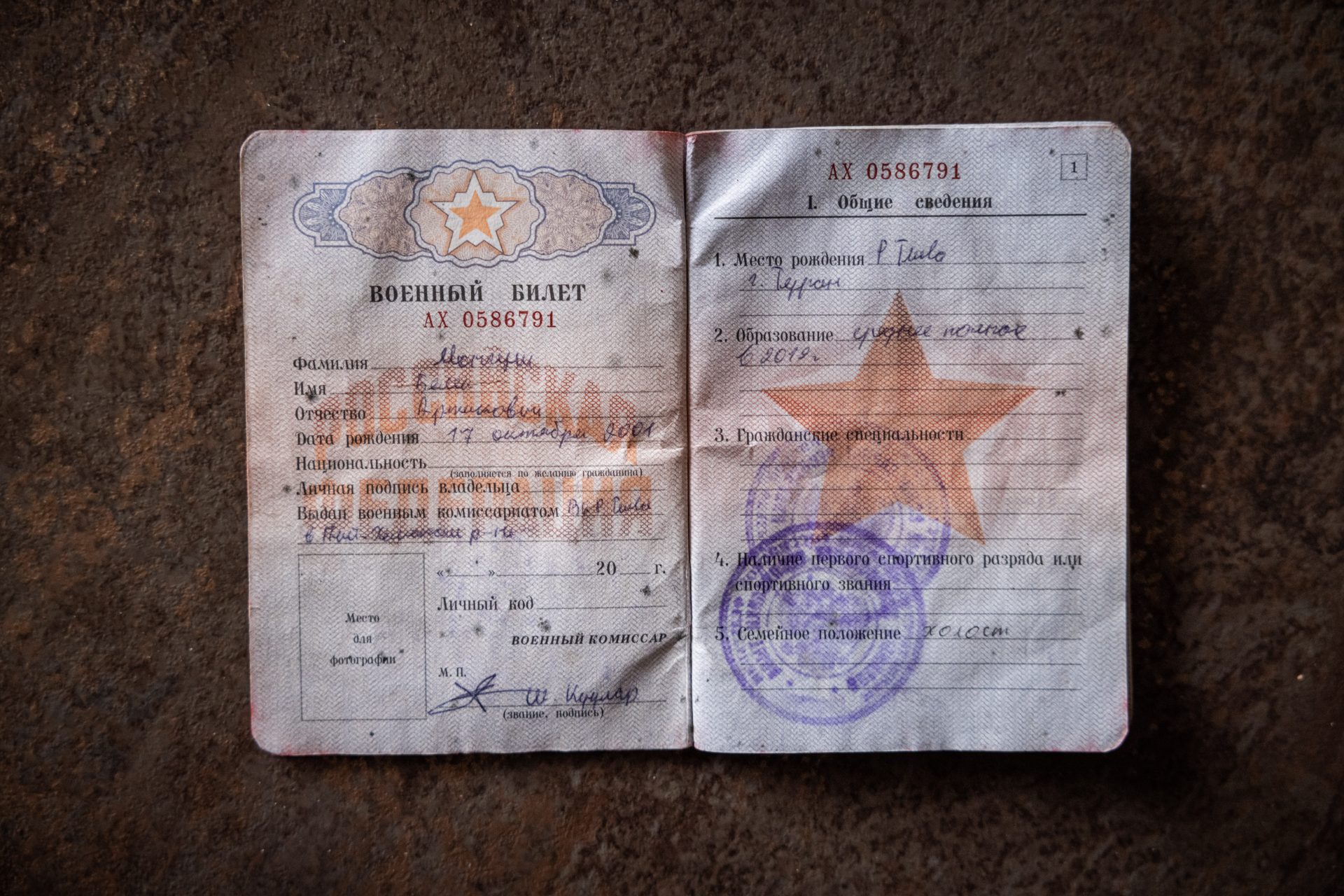Taliban decree forces Afghan women to return to the burqa
Yet another Taliban decree is making life for the women of Afghanistan more difficult. The Taliban has always imposed restrictions on the clothing and bodies of Afghan women. However, the latest decree is the first for this regime in that violating the dress code results in criminal punishment.
The New York Times reported that the Ministry for the Propagation of Virtue and Prevention of Vice announced on May 7 that it is “required for all respectable Afghan women to wear a hijab,” or headscarf.
Naturally, the Taliban ministry believes that the "best hijab" is the chadori, the blue-colored full-body veil also known as the burqa. However, a long black veil covering women from head to toe is also acceptable garb.
The Ministry for the Propagation of Virtue said in a statement: “Any garment covering the body of a woman is considered a hijab, provided that it is not too tight to represent the body parts nor is it thin enough to reveal the body.”
Unsurprisingly, those who do not follow the new decree will be punished. Male guardians in charge of an inappropriately dressed woman will be given a warning; however, repeat offenders will be imprisoned.
"If a woman is caught without a hijab, her mahram (a male guardian) will be warned. The second time, the guardian will be summoned [by Taliban officials], and after repeated summons, her guardian will be imprisoned for three days," according to the ministry's statement.
In addition, the ministry's spokesman, Akif Muhajir, said that government employees who violate the hijab rule will be fired.
Many Afghan women are not in agreement with this new decree. Marzia, a 50-year-old university professor from Kabul, spoke to Aljazeera about her feelings on the subject. She used a fake name to protect herself from the possible repercussions of speaking out.
Marzia said, “I am a practicing Muslim and value what Islam has taught me. If, as Muslim men, they have a problem with my hijab, then they should observe their own hijab and lower their gaze.”
The Taliban's latest decree is just another blow to Afghan women's rights, who have seen their freedom dramatically decrease since the Taliban seized power in Afghanistan in the summer of 2021.
In March 2022, the Taliban went back on their decision to allow girls to study past sixth grade. Schools were reopened for the new school year for both boys and girls up to the sixth grade, but secondary school remains off-limits for girls.
Afghanistan women and girls are still struggling to accept the loss of rights they have suffered since the Taliban came back into power this past summer.
Pictured: Afghan women held a silent protest on September 19th for their education rights. News outlets report it only lasted 10 minutes. After a man came and spoke to the women, they all quickly left.
After 20 years, tens of thousands of deaths, and trillions of dollars, the United States of America left Afghanistan, ending the countries longest-ever war. It didn't take long for the Afghan government to collapse and for the Taliban to return to power.
Life was already difficult for women in Afghanistan, even with Western occupying forces there to help guarantee some freedoms. Although huge gains were made in women's rights over the past twenty years, these changes were mostly experienced in the cities.
Pictured: Sept. 19th: An Afghan girl breaks down during a protest against Talibans treatment of women and children in Afghanistan, at Jangpura, in New Delhi, India.
In rural areas of the country, where the majority of women live, life was still very oppressive for Afghani women. So much so, that according to a 2018 TIME report, women in Afghanistan were still often married off into relationships unwillingly.
TIME magazine cited statistics from 2014 that 80% of those who died by taking their own life in the country were women. If life was almost unbearable for Afghani women before, what must it be like now, with the Taliban back in power?
Pictured: a young woman weeps at a protest in Kabul on September 8th, 2021. Protesters marched through the Dashti-E-Barchi neighbourhood, a day after the Taliban announced their new all-male interim government with a no representation for women and ethnic minority groups.
The Taliban made statements to the media claiming that they have relaxed some of their rules compared to when they controlled the country from 1996-2001. However, the group's words of assurance that they will "allow women more freedoms" this time around offered little comfort to the women of Afghanistan.
The Taliban is known to endorse misogynistic policies that prevent women from being employed and becoming educated. Under the Taliban regime, the women of Afghanistan were deprived of even a basic education (girls were banned from schools), forbidden from driving, forced to wear burqas, and forbidden from leaving the house unless accompanied by a male family member.
In the weeks following their take over, the Taliban began to crack down on women's rights in some of the most basic areas. For example, on Saturday the 18th of September, primary school students in Kabul returned to their lessons with gender-segregated classrooms.
Pictured: Girls studying in Herat, Afghanistan in September.
In addition, the BBC reported that girls are not be permitted to attend secondary school, which normally runs from ages 13-18. This means that by age 13, girls will no longer receive an education.
Pictured: Teenage boys attending school in Kabul on September 18th, 2021.
The revelation by the Taliban that girls will no longer be able to receive a secondary education is somewhat confusing. Early, the Taliban announced that women WOULD be allowed to study at university so long as they did it separately from men and adhered to a strict dress code (burqas are now mandatory).
Pictured: Students attend a class with a curtain separating males and females at a private university in Kabul on September 7, 2021.
BBC News reported that some believe that the Taliban has chosen to exclude girls from secondary education because they do not have the resources to provide separate classes. By barring girls from secondary education, this will no longer be a problem.
Pictured: Veiled students hold Taliban flags while listening to a Taliban speaker before marching in a pro-Taliban rally at the Shaheed Rabbani Education University in Kabul on September 11, 2021.
Students who are returned to the classrooms, both male and female in Afghanistan, found that classes were not quite like before in regards to the content. The new Afghani government announced that they were reviewing the curriculum and modifying it to make classes more Islamic.
Pictured: A class full of boys studying the Quran on September 18th, 2021.
It was also reported that women's sports such as cricket are banned since female players would be "exposed" while playing. According to TIME, a television station in Australia quoted a Taliban spokesman who declared that the Taliban would ban all women's sports, and specifically women's cricket, in Afghanistan.
The Taliban's deputy head Ahmadullah Wasiq (pictured) said, “In cricket, they might face a situation where their face and body will not be covered. Islam does not allow women to be seen like this.”
Photo: Screenshot from SBS World News
According to NPR, on September 19th, the mayor of Kabul (who was appointed by The Taliban) told most of the city's female government employees to stay home. There was only one exception to the newest restriction on women imposed by the Taliban - women whose jobs cannot be performed by men were permitted to work.
Pictured: female police officers attending a Women's Day event on March 8th, 2021.
Hamdullah Namony, the mayor of Kabul, made a statement to the Associated Press regarding this decision: "There are some areas that men can't do it, we have to ask our female staff to fulfill their duties, there is no alternative for it." One example given by Namony is female bathroom attendant, a job only a woman is fit to do.
Pictured: Afghan midwives at work, most likely this will still be a job only a woman can do.
After several days of complaints from the employees of the Afghan Women's Affairs Ministry about losing their jobs, the Taliban shut the Ministry down. It was to be replaced by the Ministry for the "propagation of virtue and the prevention of vice." A department that went by the same name was notorious for enforcing strict religious rules when the Taliban was in power two decades ago.
Pictured: Afghan women activists calling for rights and justice in front of the former Women's Affairs Ministry on September 19th, 2021.
The Taliban advocate for the following of Sharia law which authorizes the use of stoning, lashing, and other violent punishments against women accused of violating the Taliban strict interpretation of the law. The Ministry for the Propagation of Virtue and the Prevention of Vice will most likely be the enforcer of the strict religious law.
Pictured: Taliban fighters in the presidential palace in Kabul after the takeover on August 15th.
People Magazine reported that Afghani women were also stopped on the streets by the Taliban if they are walking unaccompanied by a male relative. According to the news outlet, some were beaten or whipped for breaking this rule.
Indeed the Sharia law is being enforced by the Taliban. On the 17th of August, just hours after the Taliban spokesman made a statement saying, “Our women are Muslim and will be happy to be living under sharia law,” a woman was shot and killed in the Takhar province by Taliban fighters for failing to wear a burqa.
Pictured: Zabihullah Mujahid, the Taliban spokesman during a press conference in Kabul, Afghanistan, Tuesday, Aug. 17, 2021.
Once the Taliban took over Kabul, Afghan women were instructed to destroy any evidence of activities they partook in that the Taliban may see as criminal.
Pictured: two Afghan woman holding their university degrees at a graduation ceremony in 2019.
The Taliban took control over Afghanistan at a surprising speed, leaving women who would have fled little chance of escape. A source told 'The Guardian,' “Everything changed in 48 hours. Nobody was able to escape. If it [had been] a week or something, we would have sent them to neighbouring countries, but it all happened on the same day, the airport is closed, everywhere you see terrorists with guns.”
Khalida Popal, the director of Girl Power Organization and the founder and former captain of the Afghan women's soccer team, is based in Denmark. The athlete and activist spoke to the media in August about the dangers Afghan women face now that the terrorist group has taken control of her home country.
In an interview with 'Sportico' Popal said that female athletes and coaches in Afghanistan "are on the run, their identities have been exposed, and they are targets for the terrorists." She spoke to various media outlets explaining that female athletes in Afghanistan should take drastic steps to erase evidence of their participation in sports.
Pictured: Afghanistan's Kimia Yousofi competes in the women's 100m heats during the Tokyo 2020 Olympic Games on July 30th.
Khalida Popa told 'Reuters,' “Today I’m calling them and telling them, take down their names, remove their identities, take down their photos for their safety. Even I’m telling them to burn down or get rid of your national team uniform.”
Photo: Instagram@khalida_popal_girlpower
The athlete went on to say, “And that is painful for me, for someone as an activist who stood up and did everything possible to achieve and earn that identity as a women’s national team player. To earn that badge on the chest, to have the right to play and represent our country, how much we were proud.”
Pictured: Afghanistan National Women's Soccer Team in 2013.
'The Guardian' spoke to Afghan female cycling team members in July about their fears of a Taliban take over. The athletes had already contended with physical abuse and slurs for their choice to enjoy their sport before the Taliban's takeover.
In a statement to 'The Guardian,' one member of the team said, “I really pray for the country to be a safe place for a woman like us, especially [for us to be able] to ride bikes on the streets. But I’m quite sure that the Taliban groups, the [Islamic State] and all of them, will never allow women to even study, to work, to have a job. So how is it possible they will let us do biking? I’m quite sure that they will never allow us; they will just shoot us.”
Female athletes were not the only Afghani women frightened by the Taliban. Those with higher education and a zest for learning also took precautions. In August, several Afghan women spoke to the media about the tragedy of burning their degrees and essentially erasing their professional and educational identities for fear of punishment by the Taliban.
An Afghan woman named Habiba, a 26-year-old university student, spoke to 'USA Today' about her worries for her future. “If I wear the burqa, it means that I have accepted the Taliban’s government," she said, “I’m afraid of losing the accomplishments I fought for so hard.”
Pictured: Afghan women studying to be midwives in 2012.
Girls such as those who formed part of Afghanistan's first girls' robotics team were also at risk and now must face a drastic change in lifestyle under Taliban rule. The Afghan Dreamers was based in Herat, Afghanistan, and comprised of girls aged 12 to 18. They were a motivated and talented group, building a ventilator out of used car parts amid last year's pandemic.
Pictured: members of the team in 2017.
Roya Mahboob, the founder of the team, an Afghan tech entrepreneur, and named one of 'Time' magazines most influential people of 2013, made a statement in August about the safety of the team members. According to the 'New York Times,' Ms. Mahboob indicated several team members were able to evacuate the country by plane to Qatar successfully.
However, not all members of the team chose to evacuate, and their future is uncertain. In a statement to the 'New York Times,' Roya Mahboob said, “The Taliban have promised to allow girls to be educated to whatever extent allowed by Shariah law,” Ms. Mahboob said. “We will have to wait and see to what that means. Obviously, we hope that women and girls will be allowed to pursue dreams and opportunities under the Taliban,” she said, “because that is what is best for Afghanistan and in fact the world.”
One of the first rules put in place by the Taliban was forbidding meetings between men and women. The BBC reported in August that according to an Afghan midwife who spoke to the news outlet, the first order from the Taliban was to forbid work meetings between men and women.
The 29-year-old midwife also told the BBC, "There are a lot of restrictions now. When I go out, I have to wear a burka as the Taliban orders us, and a male has to accompany me." The young professional indicated that these restrictions have made fulfilling the duties of her job very difficult.
'NBC News' spoke to the female principal of a girls high school in Kabul. According to the news outlet, Nasreen Sultani had been fighting for the right of Afghan girls to an education for years. However, with the Taliban's takeover, she feared both for her own and her students' safety.
Pictured: a 10th grade classroom in a high school in Kabul this past July.
In a statement to 'NBC News' last week, the educator said, "I tried, but we couldn't manage to make sure that women get out of this miserable situation."
Pictured: two women with their burqas lifted register as teachers in a classroom in 2001.
Ms. Sultani has run the school for the past ten years and has been threatened by the Taliban in the past. With the withdrawal of Western armed forces, she became scared of what the group might do to her and her students. She told 'NBC News' that the Taliban had told her, regarding the school, "You all might die."
Many women in Afghanistan and worldwide were horrified to see the Taliban return to power in the country. Women who fought for decades to make progress are terribly disheartened to see that their efforts were slowly but surely being undone.
More for you
Top Stories
































































